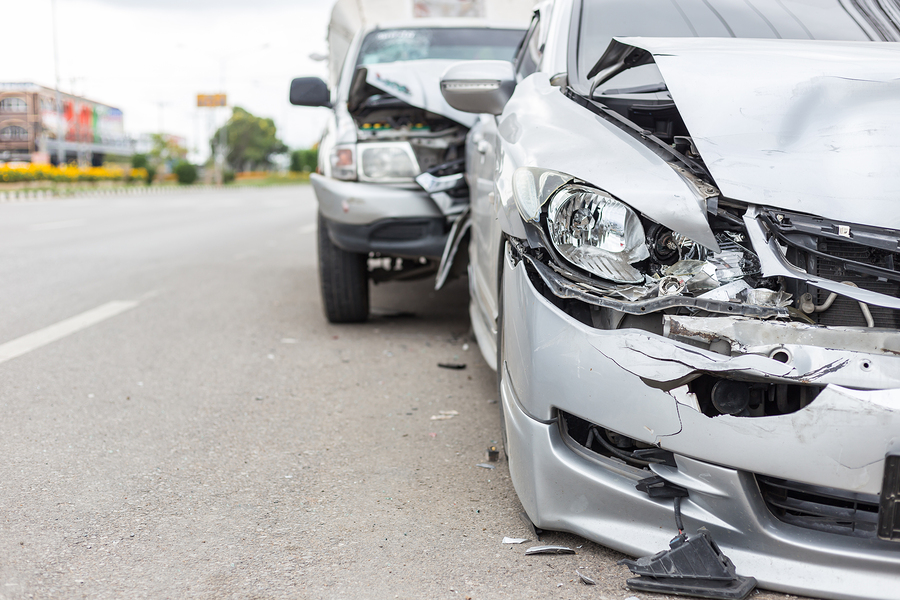People often use the term “reckless” to refer to a driver’s irresponsible behavior behind the wheel. You have likely witnessed countless instances of reckless driving. Perhaps you’ve seen drivers swerve from one lane to another without signaling or seemingly even looking where they were going. Or maybe you’ve seen cars hastily merge onto the highway to beat an approaching semi-truck. You may think drivers rushing by you at excessive speeds are reckless. Well, you are correct, of course! These are all instances of reckless driving. “Reckless” is a general adjective meaning careless or irresponsible. But reckless driving is a specific legal charge in Virginia. It’s not just something that annoys you or makes you fear an impending accident. It’s against the law. And it can leave people seriously injured when it results in a car accident.
Reckless Driving Is Against the Law
Title 46.2 of the Virginia Code is related to motor vehicles and prescribes the laws pertaining to reckless driving. VA Code §46.2-852 provides that “any person who drives a vehicle on any highway recklessly or at a speed so as to endanger the life, limb, or property of any person shall be guilty of reckless driving.” In fact, the Virginia Code gives numerous examples of behavior that meet the definition of reckless driving. Behavior that is considered to be reckless driving includes, but it not limited to:- Passing on the crest of a hill or grade of a curve, VA Code §46.2-854.
- Driving with an obstructed view or while subjected to impaired control, VA Code §46.2-855.
- Failing to give proper signals of an intent to turn or stop, VA Code §46.2-860.
- Racing, VA Code §46.2-865.
- Driving a vehicle that is not under control, e.g., faulty brakes, VA Code § 46.2-853.
- Failing to give proper signals, VA Code § 46.2-860.
- Driving too fast for highway and traffic conditions, VA Code § 46.2-861.
- Exceeding the speed limit, VA Code § 46.2-862.
What if a Reckless Driver Injured You?
The possibility of the driver’s arrest may lend some relief to injured victims. However, a criminal conviction will not ensure you are compensated for the costs of your injuries. Injured accident victims may need to seek compensation to relieve the financial burdens of medical expenses. Fortunately, individuals who have been harmed by another’s reckless driving have a legal right to seek monetary compensation from the responsible parties. Virginia adheres to a traditional fault-based system when assigning liability for damages resulting from a motor vehicle accident. In other words, a negligent driver will be liable for all injuries or property damage caused by their negligent driving. In contrast, other states follow a no-fault system. The no-fault system directs each driver involved in an accident to first file claims with their own insurance to cover any accident-related medical expenses. Unlike the no-fault system, the fault-based structure requires the at-fault driver’s insurance to cover an injured victim’s medical expenses. To understand how the fault system operates, you must first develop an understanding of the legal concept of negligence. Under Virginia law, conduct is negligent when someone owes a duty of care to others and they violate that duty. All drivers owe a duty of care to drive carefully and properly as to avoid injuring others sharing the roadways. The duty of care includes obeying all applicable traffic laws. It follows that a driver convicted of reckless driving has violated the duty of care. The legal definition of reckless is slightly different than the legal concept of negligence. However, it’s safe to say that any driver convicted of reckless driving is also negligent. By nature, reckless driving does not meet the standard of care that requires drivers to drive safely and prudently. If a driver has violated their duty of care and that violation has caused your injury, they are responsible for your injuries. They are liable for damages stemming from those injuries. Under Virginia law, you may pursue compensation from an at-fault driver for the following damages:- Medical bills, including emergency care, doctor’s visits, hospitalization, surgery, prescription medication, rehabilitative therapy, and more.
- Wages lost from work due to the accident.
- Pain and suffering.
How Do I Go About Recovering Damage Compensation From a Reckless Driver?
How can you receive this damage compensation? There are several steps you may choose to take when seeking damages from responsible parties. First, you can approach the at-fault driver’s insurance company. Virginia drivers who are insured must carry the following as minimum coverage:- $25,000 liability coverage for bodily injury or death of one person in an accident caused by the owner or driver of the vehicle.
- $50,000 liability coverage for total bodily injury or death in an accident caused by the owner or driver of the vehicle.
- $20,000 liability coverage for property damage per accident caused by the owner or driver of the vehicle.
- If the insurance coverage provided by the at-fault driver’s insurance is insufficient to cover the medical expenses required by the extent of your injuries.
- If the insurance carrier isn’t paying a fair and just amount.
- If you were injured by an uninsured driver.


